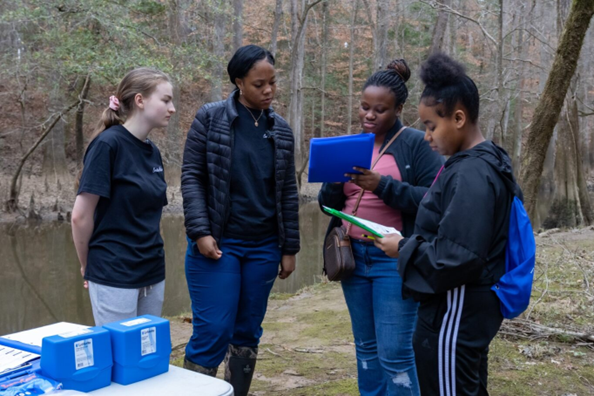As schools wrap up another academic year, findings from a project aimed at improving the health of South Carolina’s children highlight the benefit parents and communities can gain by including physical activity in children’s schedules over the summer and beyond.
While positive steps have already been taken in South Carolina to address the issue, the state still faces a high childhood obesity rate. According to the SC FitnessGram project, nearly 37 percent of South Carolina’s youth are obese or overweight and almost half of them do not meet health-related standards for heart-lung fitness when tested on physical activities such as brisk walking or running.
‘Healthy students learn better’
This statewide effort to evaluate and improve health-related fitness among public school students is funded by BlueCross BlueShield of South Carolina Foundation as part of a partnership that includes DHEC, the South Carolina Department of Education and the University of South Carolina.
“The Foundation’s commitment to a healthier South Carolina starts by creating healthy habits in our children,” Foundation executive director Erika Kirby said. “We know that healthy students learn better. For the first time, we have statewide health-related fitness data that can be used to shape and support quality physical education efforts in South Carolina. We remain focused on the health of our children and will use these numbers as an example of the continued work to be done.”
While it has long been known that South Carolina has an obesity problem, this is the first time our state has compiled comprehensive data of this kind. Thanks to the statewide FitnessGram software and the partners that have collaborated on this effort, there is now a way of tracking the problem and, more importantly, of coming up with ways to combat it.
“The SC FitnessGram project provides important findings that are a great benefit to our state. It’s critical that we continue to support greater health-related fitness outcomes for our state’s K-12 students,” said USC President Harris Pastides.
Obesity has consequences
During the 2016-2017 school year, over 100,000 students from over 700 schools in 60 school districts participated in the project. The program was administered by physical education teachers to students in the second, fifth and eighth grades and high school. FitnessGram assesses components of fitness that are known to be related to health outcomes in children and youth.
“The health and nutrition of South Carolina’s students has a strong impact on their future and productivity later in life,” said State Superintendent of Education Molly Spearman. “The collaborative support from both the public and private sectors in the SC FitnessGram project has provided educators and communities with valuable data to make informed decisions about the well being of our young people. I look forward to continuing our work and ensuring that South Carolina students are prepared for success.”
Obesity has important consequences on South Carolina’s health and economy. The economic cost of obesity in S.C. is estimated at $8.5 billion per year and growing. Obese and overweight children are at risk for several serious health problems such as coronary heart disease, stroke and diabetes.
Physical activity is key
“Increasing physical activity is a critical strategy to prevent childhood obesity and decrease the risk for numerous adverse health outcomes,” said Dr. Lilian Peake, DHEC director of Public Health. “Overcoming obesity is a significant challenge that South Carolinians must tackle together. It will take a concerted effort by parents, schools, community organizations, health care centers and others to help improve the health of our students.”
School-age youth need 60 minutes or more of physical activity every day. In an effort to encourage more physical activity among South Carolina’s youth, several recommendations have been developed that people can use at home, in schools, and around their communities.
The full SC FitnessGram report as well as other information related to obesity and fitness can be found on the SCaledown website at scaledown.org/fitnessgram.




